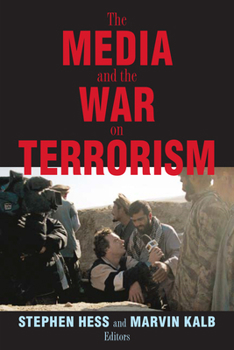The Media and the War on Terrorism
Select Format
Select Condition 
Book Overview
These candid conversations capture the difficulties of reporting during crisis and war, particularly the tension between government and the press. The participants include distinguished journalists--American and foreign, print and broadcast--and prominent public officials, past and present. They illuminate the struggle to balance free speech and the right to know with the need to protect sensitive information in the national interest. As the Information Age collides with the War on Terrorism, that challenge becomes even more critical and daunting. "We are very careful in what we talk about publicly. We do not want to paint a picture for the bad guys. So we don't talk very much at all about what we're going to do going forward."--Victoria Clarke, Department of Defense "This was a war that was very different. It was conducted primarily by about 200 to 250 special forces soldiers on the ground. There were no reporters with those soldiers until after the fall of Kandahar, until the war was essentially over. There were no eyes and ears, and that's the way the Pentagon wants it."--John McWethy, ABC News "I covered Capitol Hill for a very long time and was always astounded by the nonpolitical motivation of a lot of people that are up there who really do want to make the world better, want to make the U.S. better. So don't come away believing that because there are political implications that there are always political motivations."--Candy Crowley, CNN "There is a feeling among the community, Muslim Americans, and also overseas that we might become the new enemy. But so far nobody knows whether it is just because of the war or if it's going to last."--Hafez Al-Mirazi, Al-Jazeera
Cosponsored with the Shorenstein Center on the Press, Politics and Public Policy at the Kennedy School, Harvard University.





